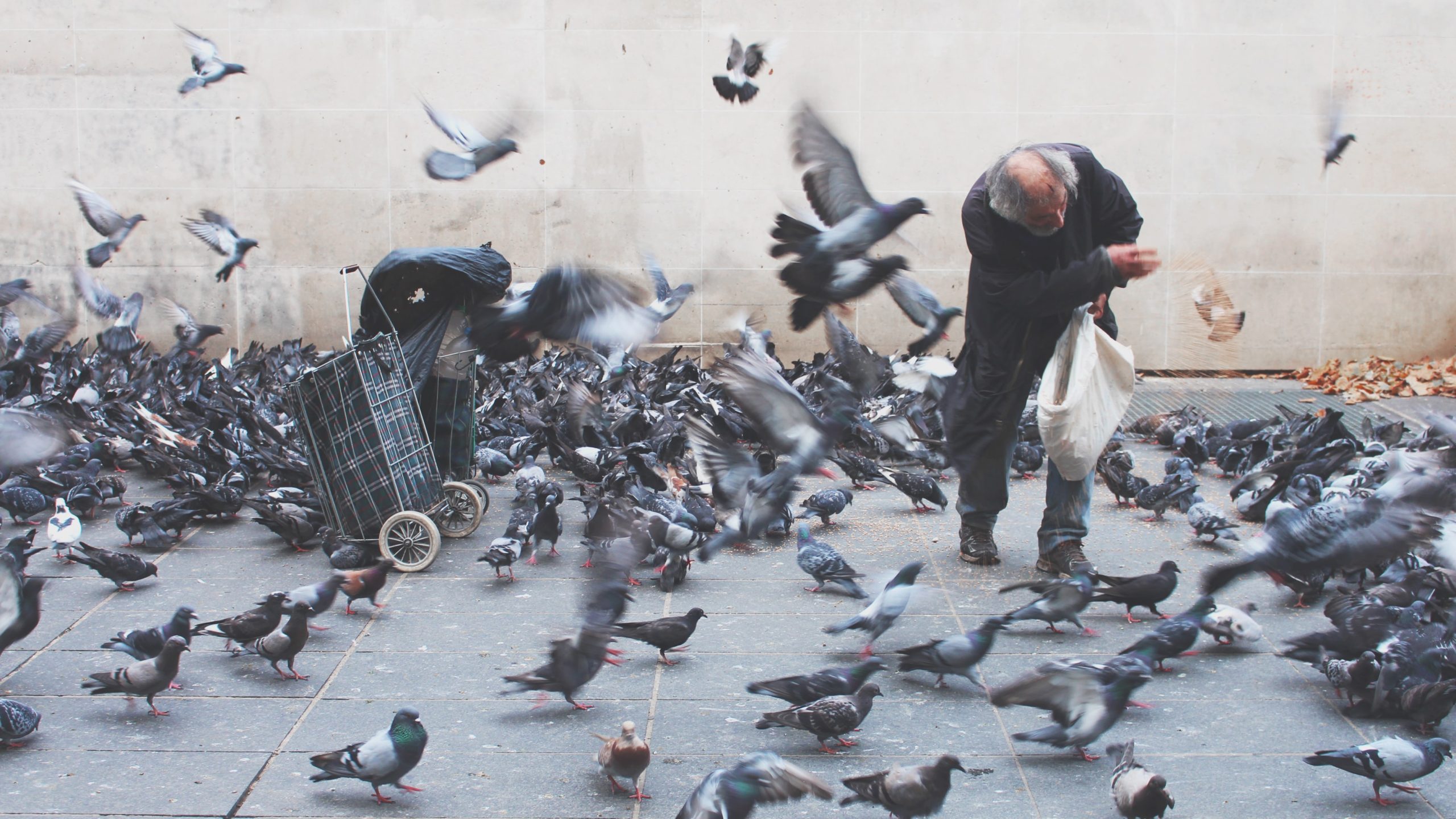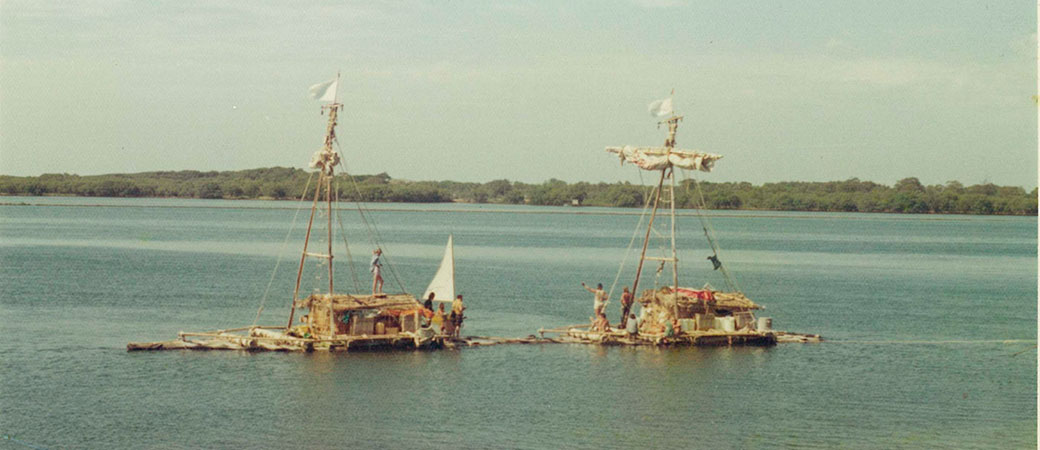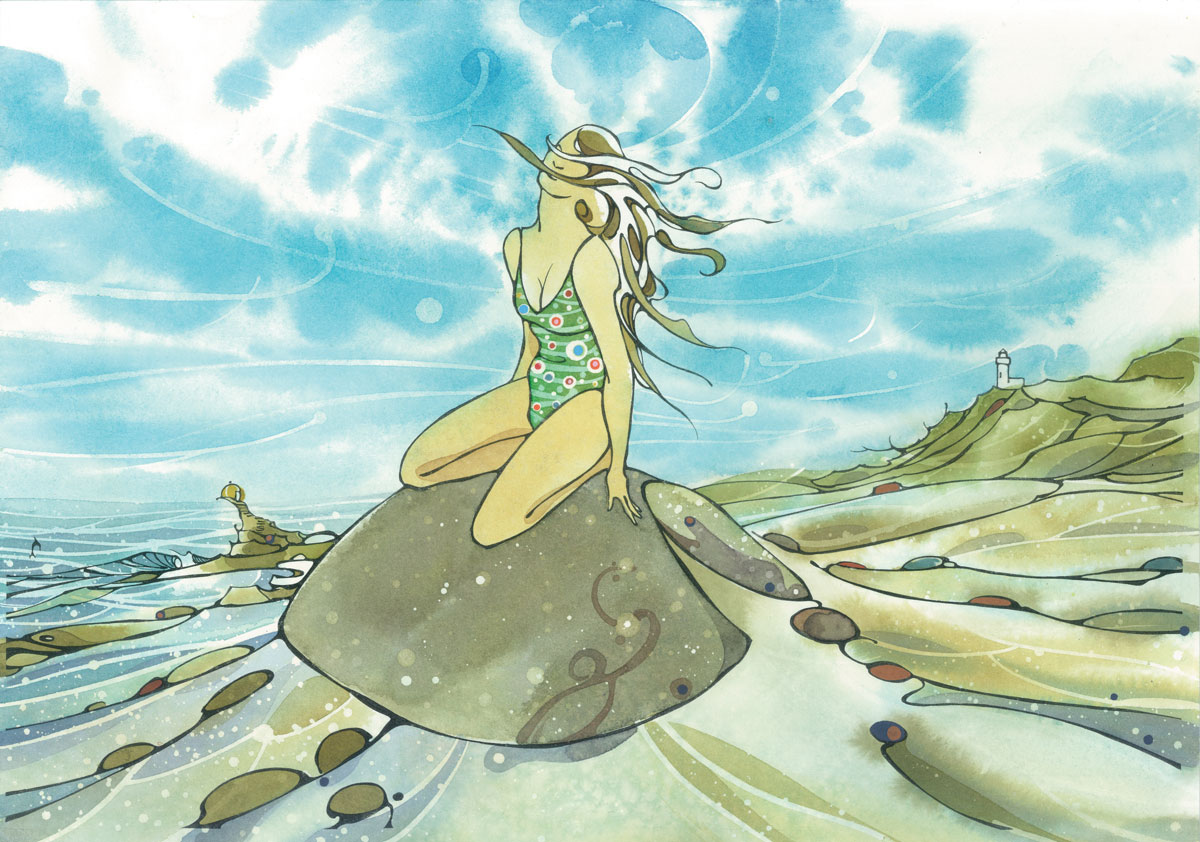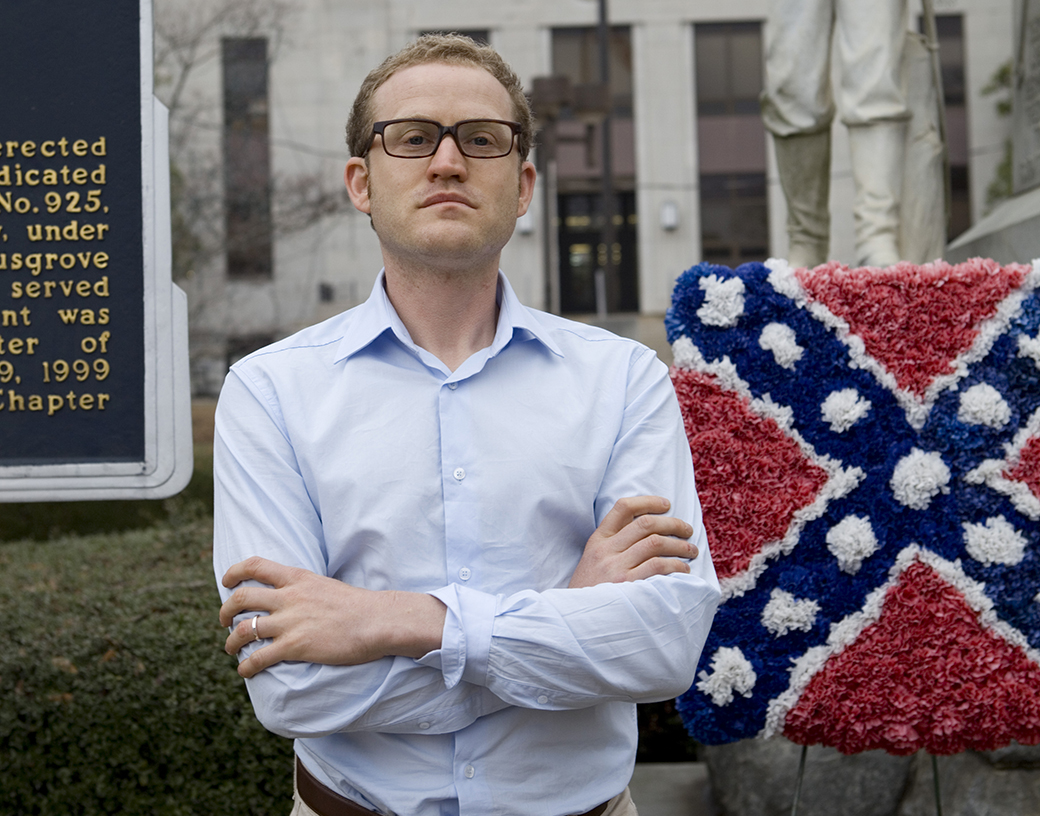
THE THERAPY OF GIVING
If there is one thing that challenges us in today’s bustling, frenetic, over-exposed society, it is our sense of purpose.
The age-old question of “why am I here” has confounded and perplexed us since cognitive sentient thought began. It is that notion of belonging, of direction and reason that whispers when we wake and grows in a screaming crescendo as we shutter our eyes at the end of each day.
We have searched for it in religion, given reason to it in relationships, justified it in procreation and, most detrimentally of all, looked to superficial, egocentric possessions and careers for a means of remunerating our lives.
Yet still we ask the same questions, feel the same emptiness and strive for relinquishment from a hollow existence.
Darwinian notions of evolution and the quest beyond self-preservation may well still apply to every other bound collection of living cells upon the planet, but for we humans, and we alone, passing on our DNA has become an optional objective. No longer are we committed to contributing our single drop to the ever-expanding gene pool as it bursts its banks and engulfs our planet.
If, like the praying mantis, we were to risk our very existence to handball our cellular codes to the next generation, we’d be celibate for life. If we had to shed blood and battle the biggest of adversaries just for a quickie, most men would opt out and many women would be utterly turned off by the senseless, testosterone-fuelled bravado of it all.
So is family truly a purpose of life? To suggest so would imply that those electing for a life without children or worse, those who crave offspring but are unable to conceive, have an entirely inconsequential and meaningless existence. And considering the likes of the Dalai Lama, Mother Teresa, and many more inspirational humans who have changed the world without siring or birthing a child, or indeed, many who have expanded their bloodline but committed many evils, procreation does not equal justification.
Perhaps religion does have the answers.
For Buddhists, our life journey is one towards enlightenment; perhaps not in this lifetime, but by abiding by certain doctrines, meditating, reciting innumerable repetitions of mantras and prostrating ourselves from Dharamsala to Lhasa, we could learn humility, compassion and equanimity. Is this ‘reason’ to live? Perhaps, but then what of Christians, living by the creed, going to church and eating of body and blood – do they then become worthless in life? Or extremists, so convicted in their devotion to god and purpose that they would gladly flick the switch on a waistcoat of C4 for cause and purpose and 72 heavenly nubiles.
Surely one of the great religions has it right…but what if they all have it wrong?
Therefore status must, in this miasma of reason, be our purpose. Through sweat and toil, we can climb the corporate ladder, we can grow our wealth, engorge our bank accounts, and achieve such greatness of vindication.
Yet the savagely truthful adage of the man spending all day driving in a fancy car to work all hours in a job he hates to afford the house and trappings he spends such little time enjoying begs to differ.
What purpose is it to pursue the ephemeral? We become dissatisfied with objects, we choose to leave behind the homes we work so hard to attain, there is always a bigger, newer, shinier trinket to be envious or desirous of, and deep down we know, beyond the shiny exteriors, desirable labels and increasingly weighty price tags, that true happiness does not lie inside matte white boxes embossed with half-eaten silver fruit.
It’s little wonder that one of the greatest diseases of our species is just that: dis-ease. Depression runs rampant, stress outscores the most virulent of viruses, anxiety grows like the walls of Babel, threatening to collapse and inter us at any moment. But without purpose, what choice do we have? What chance at affirmation of our existence remains?
Purpose is given the grandiose gravity of a lifelong burden. It comes as little wonder that it feels such an insurmountable summit, placing even greater pressure upon us to fulfil it in any way we can find, and we search for rationale in religion, foundation in family and therapy in things. But we’re looking in the wrong places, and even more absurdly, in completely the wrong direction.
Before I expound on the virtues of outward purpose, it must be said that the power of faith – true, deep and unindoctrinated faith – is profoundly beautiful and, at times, quite literally lifesaving. So too can family bring such purpose to our lives that we feel they are our reason; bringing them into the world, nurturing them through every first step, scuffed knee and broken heart to make them good and whole and safe.
But again, this is like looking in a mirror and thinking it’s a window.
Some people believe that salvation lies in God…but they left a letter out. Our reason, our justification, and the sanctuary of our sanity is not in God, but in Good. Religions are a wonderful invention but, though it might print, sign and stamp my one-way ticket to whichever destination of damnation you happen to believe, they are just that: an invention. They are a construct to control the people, or at least, at tool to control the voices inside our heads.
Yet they almost all hold the same fundamental values that – beyond any belief or book – summarise our purpose, and Christianity said it best: love thy neighbour – just don’t love them beyond first base.
This single phrase sums up one of the most profoundly purposeful, simple, justifying and healing reasons we have for our continued breath. But it falls short in its explanation. Our ‘neighbour’ is not only the person next door, or in the same city, or on the receiving end of your kindly donation. It isn’t even limited to a person at all. Our neighbour may be a tree, a dog, a tumbling stream or crashing tide.
Our planet is a single, interdependent organism, the whole of which we are part, so our neighbour is every aspect of that vast organism outside of ourselves.
To love, to give, to do good allows us to thrive. It gives us that reason without misinterpretation or conjecture. We are encouraged so much in these days of reconnection to give to ourselves and indeed, to once more reference religion, compassion towards ourselves first and foremost is paramount. For if we are disempowered, what have we left to give?
Yet in the act of giving, pouring our energy forth rather than hoarding it all within, we find an emotional panacea. Giving can often be viewed as completely the opposite. We are predisposed in today’s society to be ubiquitously focussed inward, given to a life of what we want, what we need and what makes us thrive, so it can seem that to place others before ourselves, or even alongside, is to undermine our own contentedness. Yet in the act of giving, we send out ripples of positivity, cleansing waves in which we may then bathe.
As astrally spiritual as this may sound, it is wonderfully simple and exquisitely tangible.
Take the simple act of smiling. No matter what tempests of emotion may be swirling within us, we are so familiar with the concept of smiling that it is easy to tense our cheeks, curl our lips and convey a fairly convincing visage of happiness or kindness to all but those who know us the most.
You need not smile emotionally or feel that positivity of emotion within, but if you smile with sincerity, those around you will smile with you, and their happiness is contagious, rapidly infecting and affecting us with that same emotion that we have projected and influenced. Give, and you shall receive.
In some of my darkest moments, when despair has enshrouded me like a moonless night, when I have walked barefoot through the ruins of what my life has become, at least what I have perceived it to have become, solitude, meditation, yoga and surfing have been band aids at best, a Panadol for an unsalvageably broken soul.
But to give – to give has ignited the tiniest of sparks that beckon the return to light.
Doing good for the world wipes hopelessness from the heart, it gives you reason, and continuing to give fuels an unquenchable positivity.
When struggling, especially through grief, depression or the many issues that deprive us of joy, we must return to the nature of compassion; that it is compassion towards self that must come first. So we begin with gentle gifts; a flower picked for a loved one, affection reciprocated for an adoring pet, something so nondescript as picking up a piece of garbage and taking it to the nearest bin. Even these slight, almost meaningless things breathe new life into the fading embers of our happiness.
Fortunate to have lived on many of the world’s beautiful coasts, my primary therapy is to grab a bottle of water, a handful of trash bags and a phone full of good music and retreat to the shore. An hour scouring a beach for trash has given me greater healing than the many hours of psychology I have attempted. I am good, I have made a difference and, though I may not see a single other soul on my sandy-footed, sun-kissed, salty-faced wandering, I know that my simple act may have saved a hundred lives – lives of fish and birds and mammals.
The effects of these therapy sessions I may never see, but even in the realms of the hypothetical, I know that my actions have done good. And it makes me happy.
On several occasions, I have taken to stockpiling painkillers, with the most negative of intents. At one of these times, in the fourth or fifth shop I had entered that day for the sole-same purchase of purpose, I saw an middle-aged lady struggling, arms laden with groceries, at any moment poised to drop and bruise her apples, smash her jar of jam or otherwise unintentionally offload her unruly cargo. What possessed me, how the thought glimmered through the thick storm clouds whirling within me, I do not know, but I dashed three aisles down and returned to her with a basket.
A simple gesture, for which she was so grateful, but the greatest gratitude was mine. Because unknown to her, on that day, with an act that I, not she, had proffered, on a day she will never remember and I will never forget, she saved my life…literally.
We don’t need to devote our lives to charity or become entirely and selflessly altruistic. We simply need to alter our gaze to the exterior, beyond the cage of our own ego and into the world. The tiniest thought or gesture for a life other than your own, be it man or beast or plant or planet, can be supremely uplifting. We can gain so much from giving, we just misunderstand the concept of receiving, thinking of it as a one-way transaction.
Giving won’t cure cancer. It won’t bring back a loved one or pay your overdue rent. There is so much in this world that giving can’t fix, but also so much that it can, especially within ourselves.
By giving, by doing good in any small way we can imagine, we begin to cocoon ourselves in positivity. We flood our surroundings with endorphins and good vibes, and pretty soon, we’re saturated in them. That warm glow of satisfaction grows inside, filling us with its gratifying glow. In fact, giving with true intention can actually be incredibly self-serving! And when it becomes familiar enough, you will thirst for it, become greedy for that glow and find more and more ways to give each day in tiny ways that won’t impede your own life at all. Rather, they will make it all the more rich, rewarding, purposeful and radiant.
We are all as different as the problems and pains we face. Religion may save some, materialism may serve others, parent or partner may feel like the role we were destined to play, but all of these things are fed and fuelled by the act of giving. To be a good Jew is to be kind to others, the greatest fortune is even more gratifying by how much you can help others, and the love of family is infinitely expounded when kindness and generosity fill your home.
Giving is possibly the simplest, easiest and most powerful therapy we can all undertake.
Why are we here? We are here to give. And in that giving, we find our purpose, we justify our existence, we heal, we learn, we grow. In that giving, we receive the greatest gift of all.
I give, therefore I am.
THE TRADE-OFF
You May Also Like

LAS BALSAS | A REAL ADVENTURE STORY
May 30, 2015
PULP FRICTION
July 9, 2016
